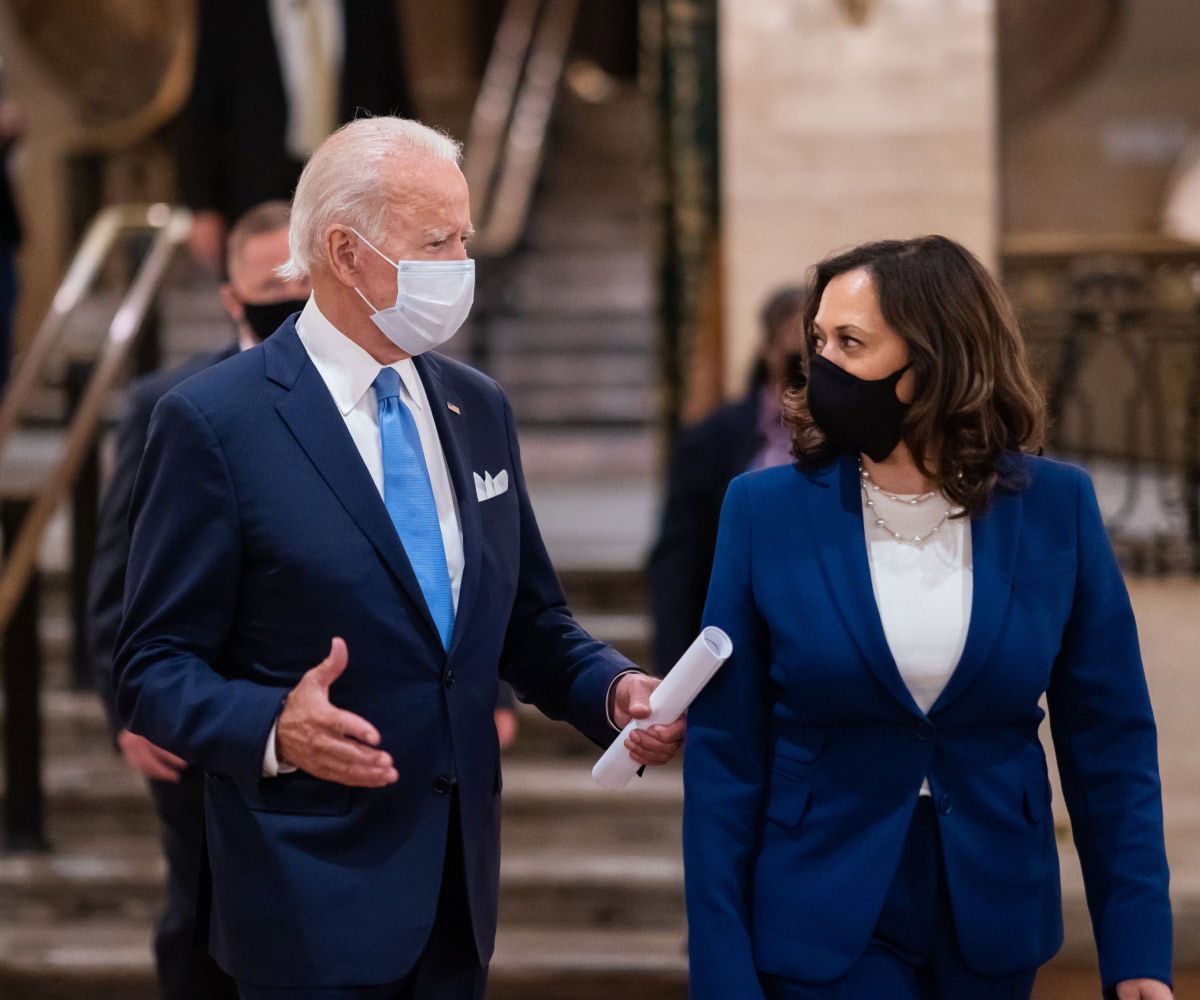America's Supply Chain Is Back On Track Thanks To President Biden's Leadership
President Biden's approach to COVID has included not just furthering America's recovery, but expanding it to areas his predecessor ignored. For example, President Biden announced tens of billions of dollars in funding to prevent most Americans from having to shut off their heat this winter, put the U.S. on track to fully restore employment by mid-2022, protected the solvency of retirements for millions of Americans, boosted wages, surged funds to combat domestic violence, and more. Now, we can add fortifying America's supply chain to this list.
The media whipped up a frenzy with images of cargo ships in Los Angeles and Long Beach last month, enough of a frenzy that the likes of Judge Schroeder brought it up after his racist comment about Asians and before letting a neo-Nazi get away with murder. They weren't so keen on talking about what happened afterward, though.
America's supply chain was disrupted in 2020 as well as 2021 because of COVID-19. However, while Trump recovered from his well-deserved case of the virus and went on Twitter rants leading up to the election, President Biden took action to address the issues facing the American people. He helped the Ports of Long Beach and Los Angeles, which take in 40 percent of goods shipped via water in America, stay open 24/7 by implementing fines for vessels lingering in port and using these funds for additional manpower hours. Almost immediately, the congestion began to clear up. In the past month, the number vessels staying in port for more than nine days, or the average pre-pandemic time for the ships, has fallen in half and the number of goods being processed in these two ports is up 16 percent from 2018 levels, with progress continuing to be made.
The progress has been seen in ports across America. President Biden announced emergency rules and funding to support the Port of Savannah, one of America's largest ports, with the repairs it needed to speed up processing of goods. More funds were unlocked for inland and oceanic ports across the country soon thereafter when President Biden signed the Infrastructure Investment and Jobs Act, which includes the largest funding boost for America's ports in history.
It's not just ports, though: supply chains are incredibly complex. President Biden negotiated with both Samsung and President Moon of South Korea to establish a semiconductor (used in auto and tech goods) factory in Texas. At the same time, semiconductor company Nvidia is on track to be the next trillion-dollar corporation within a year or two, demonstrating the progress being made in helping supply meet demand.
Stores are seeing the benefits. On-shelf availability (in terms of percentage, not goods, which means the fact that it is the holidays has no bearing) is back to what it was in February and is on track to far surpass availability during the holidays last year. Target, Walmart, Home Depot, and most other major retailers have announced that they will be able to get anything their consumers want this December, and online retailers are benefitting, too: Amazon is on track to pass the $2 trillion mark by January.
Long story short, President Biden's emergency measures have brought the supply chain not just back to pre-pandemic levels, but better. The Build Back Better Act includes billions of dollars for supply chain resiliency, which will codify and expand this progress for years to come. Congress needs to pass President Biden's agenda as soon as possible.

Comments
Post a Comment